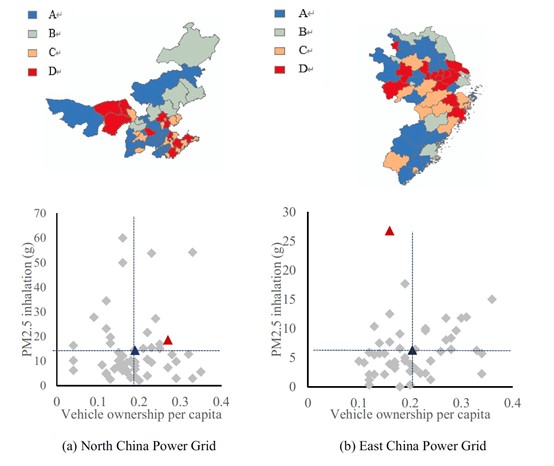ABSTRACT
Electric vehicles (EVs) are promoted in recent years as an effective way in alleviating the air pollution caused by tailpipe emissions. However, the pollutants derived from EVs are unheeded. EVs rely on electricity to provide power, and thus their related pollution is transferred to the power plants, which gives rise to the environmental and health pressure to the adjacent regions. In this paper, the transfer of EV-attributed PM2.5, SO2, and NOx inhalations in China are studied. Then by comparing the inhalations versus traffic accessibility among the impacted municipalities, this study sheds light on the environmental injustice lying in the mismatch between pollutant inhalations and traffic accessibility. The results reveal that compared with Shanghai and Shenzhen, the promotion of EVs in Beijing triggers higher pollutant inhalations to its surrounding municipalities. North China Power Grid undertakes 715.62 g PM2.5 inhalation in total, which is 2.51 and 3.20 times higher than the East China Power Grid and the China Southern Power Grid, respectively. The number of municipalities with lower traffic accessibility while higher pollutant inhalation is 8,8, and 17 in North China Power Grid, East China Power Grid, and China Southern Power Grid respectively, indicating conspicuous environmental injustice resulted from the promotion of EVs.
KEYWORDS
EV promotion; Pollutant inhalations; Traffic accessibility; Environmental injustice
JCR CLASSIFICATION
Q1
Science of the Total Environment
https://doi.org/10.1016/j.scitotenv.2020.143853

